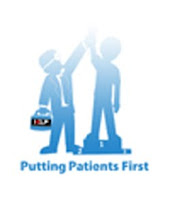HEALTH EDUCATION LIBRARY FOR PEOPLE
World’s largest FREE health Education library for people. .
We help patients to become better patients! We can help you understand your health and medical problems better so you can get better care in partnership with your Doctor.
OUR VISION
We think patients are the largest untapped healthcare resource and that Information therapy is the most Powerful Medicine !
OUR GOALS
- Encouraging health insurance companies to invest in patient education.
- Advocating information therapy.
- Setting up a national network of patient education centers.
- Developing patient educational materials in Indian Languages for the web.
Health Education Library For People
206,Dr.D.N.Road,
National Insurance Bldg.,
Ground Floor,
Near New Excelsior Cinema,
Mumbai – 400 001.
Tel:22061106,22031133, 65952393,65952394
Email: helplibrary@gmail.com
www.helpforhealth.org
HEALTH EDUCATION LIBRARY FOR PEOPLE
____________________________________
Other names:
- Iron-poor Blood
- Low Blood
- Tired Blood
|
Overview of Anemia
|
|
Anemia |
Anemia (uh-NEE-me-eh) is a condition in which your blood has a lower than normal number of red blood cells. This condition also can occur if your red blood cells don’t contain enough hemoglobin. Hemoglobin is an iron-rich protein that gives blood its red color. This protein helps red blood cells carry oxygen from the lungs to the rest of the body.
If you have anemia, your body doesn’t get enough oxygen-rich blood. As a result, you may feel tired and have other symptoms. With severe or long-lasting anemia, the lack of oxygen in the blood can damage the heart, brain, and other organs of the body. Very severe anemia may even cause death.
Anemia has three main causes: blood loss, lack of red blood cell production, or high rates of red blood cell destruction. These causes may be due to a number of diseases, conditions, or other factors.
Signs and Symptoms of Anemia:
- Shortness of breath
- Dizziness
- Headache
- Coldness in the hands and feet
- Pale skin
- Chest pain
The most common symptom of anemia is fatigue (feeling tired or weak). Other signs and symptoms include shortness of breath, dizziness, headache, coldness in the hands and feet, pale skin, and chest pain. Mild to moderate anemia may cause mild symptoms or none at all.
Anemia is a common condition. It occurs in all age groups and all racial and ethnic groups. Women and people who have chronic diseases are at increased risk for anemia.
Treatment:
Treatment for anemia depends on the type, cause, and severity of the condition. Treatments may include dietary changes or supplements, medicines, or procedures.
Your doctor will diagnose anemia based on your medical and family histories, a physical exam, and results from tests and procedures. Often, the first test use to diagnose anemia is a complete blood count (CBC). A CBC measures many different parts of your blood.
You may be able to prevent repeat episodes of some types of anemia by making dietary changes, taking supplements, or treating an underlying condition. Often, you can treat and control anemia. If you have signs and symptoms of this condition, seek prompt diagnosis and treatment. With proper treatment, many types of anemia are mild and short term.
Anemia and Older Adults:
Chronic diseases, lack of iron, and/or generally poor nutrition often cause anemia in older adults. In this age group, anemia often occurs with other medical problems. Thus, the signs and symptoms of anemia often aren’t as clear and may be overlooked.
You should contact your doctor if you have any signs or symptoms of anemia. If you’re diagnosed with anemia, your doctor may:
- Ask about your diet to see whether you’re getting enough vitamins. He or she may recommend vitamins or iron or folic acid supplements.
- Prescribe a man-made version of erythropoietin if your anemia is due to cancer, kidney disease, or treatments for these diseases. Erythropoietin is a hormone that stimulates the bone marrow to make red blood cells.
- Recommend a blood transfusion if your anemia is severe.



No comments:
Post a Comment